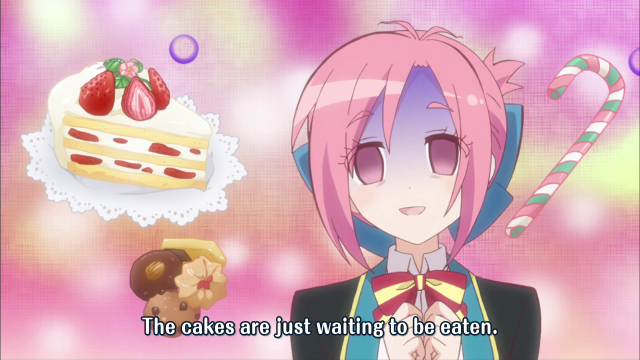Akatsuki no Yona, with all its talk of Tenmei–literally, “the Will of Heaven”–has got me thinking about the Will of God. This is often difficult to determine in our lives, and I have heard one Catholic commentator state: “The Will of God is inscrutable.” But, not everything which happens by God’s Will or permission outstretches our understanding; otherwise, we should simply not understand God in the slightest and not be able to have a relationship with Him. In general, He commands all people to follow the moral law and exercise charity towards each other. On a more particular level, the Will of God may be communicated to us through our talents and desires. Do you have an extraordinary talent for the most abstract arithmetic imaginable? Perhaps, God wishes for you to become a university professor. Do you love someone of the opposite sex profoundly? Do not be surprised if God wishes you to marry that person.

Yet, desires can be a very tricky thing, and people are often mislead. The particular Will of God for us is based in the individuality which God gave us. It subsists in the core of our being. Only by being true to ourselves can we be true to God and find happiness. However, we are surrounded by many happy people in the world, and we might think that by having what they have we shall also be made happy. Besides this, the world itself offers many things–especially money–which it claims will make us happy. But, you cannot serve God and mammon! The more you listen to the noise of the world the less you shall discern the whisper of God. To one who has become too worldly, God can no longer whisper: He must shout!

As C. S. Lewis tells us, pain is often the means by which God tells us something is wrong. We suffer anxiety, depression, and vague feelings of unhappiness. Should our response to these feelings be seeking worldly distractions, God may sever us forcibly from the pleasures of the world with the blade of poverty. Impoverished, we lack the means of spoiling or distracting ourselves with external goods. All we have left are those talents and desires which we ignored in our prosperity. In running away from our talents, our individuality, and our specific manner of serving our brothers and sisters, we have become less human. We struggle for a while in attempting to regain our status, but the Mercy of God prevents it while we yet ignore God’s voice and rely solely upon ourselves. At last accepting our fate, the vanity of worldly pleasures (many perhaps good in themselves but evil when they stand in the place of God) becomes apparent and the memory of them bitter.

St. Francis of Assisi. with his father having demanded that he return everything he “stole” from him, doffed even the clothes he wore.
Despite these many pains, poverty or very frugal circumstances are not signs that God hates us. Instead, God calls the poor blessed–both the materially poor and the spiritually poor. The fact that religious orders often include a vow of poverty indicates the link between the two. Why are the poor blessed? Because they contend less with the noise of the world and focus more on the Will of God and the intrinsic goods God has given them to share with others. The poor in spirit are capable of great things because their only concern is the Will of God.

Though, I could use the example of many saints to show the sanctifying effects of poverty, I’d like to instead use the example of Ulysses S Grant. Who can doubt that the man was born to be a soldier? He was the only Union general with the competency to avoid losing ground to General Lee and the dogged tenacity to make a war of attrition successful. The happiest times of his life coincided with his military service. After resigning from his first period of service, he relied on the charity of his father-in-law until the outbreak of the Civil War. After the Civil War, his name was smeared by the presiding over the most corrupt administration in history until modern times. Afterwards, he did the unthinkable action of trying to break with Washington’s precedent in order to run for a third term! A sore loser, Grant bore a grudge against James A. Garfield for winning the nomination–even though Garfield not only did not seek the nomination but even was horrified to gain it!

Compared to the humble, frank, and unambitious man of prior times, Grant the politician seems a different man–a monster! Here is a description of Grant just after the Civil war by General Richard Taylor from Destruction and Reconstruction:
The officers of the army on duty at Washington were very civil to me, especially General Grant, whom I had known prior to and during the Mexican war, as a modest, amiable, but by no means promising lieutenant in a marching regiment. He came frequently to see me, was full of kindness, and anxious to promote my wishes. His action in preventing violation of the terms of surrender, and a subsequent report that he made of the condition of the South – a report not at all pleasing to the radicals – endeared him to all Southern men…His bearing and conduct at this time were admirable, modest and generous; and I talked much with him of the noble and beneficent work before him. While his heart seemed to respond, he declared his ignorance of and distaste for politics and politicians, with which and whom he intended to have nothing to do, but confine himself to his duties of commander-in-chief of the army.

That is exactly the man who commanded the Army of the Potomac and the one who wrote the most famous memoir of any participant in the Civil War–a memoir which a friend tells me affected modern American prose more than any other work! (Grant’s memoirs do read like something our of the 20th century rather than the 19th.) But, politics, power, and fame almost ruined Grant for good. When Grant wrote his memoirs, he had been reduced to desperate poverty, which I have no doubt was God’s method of restoring Grant’s character. The Hound of Heaven will resort to any means to prevent people baptized in His name from perishing everlastingly.

So, people suffering from want or various forms of misery need not despair. Pain is often the sign that one is still united to Christ Crucified and often purifies the soul to a salutary poverty. “Blessed are the poor in Spirit, for theirs is the Kingdom of God.” The share of the Kingdom of God we have on earth is performing the Will of God, which, though it may be a gentle whisper, rings loud and clear to the poor in spirit.
































































